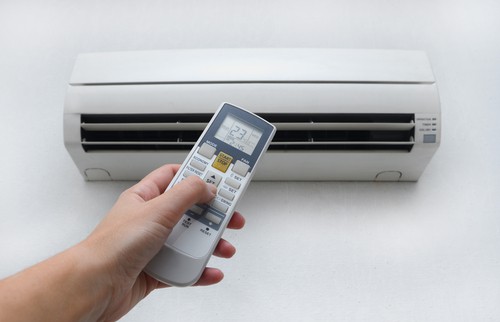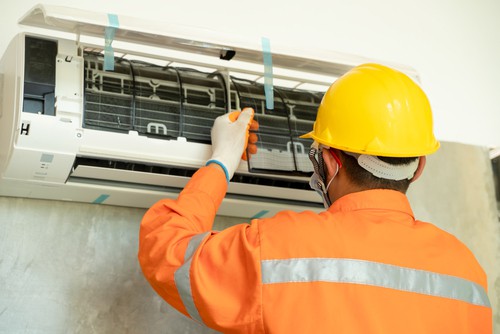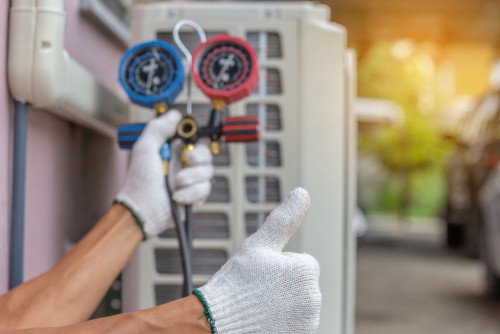
6 Common Misconceptions On Aircon Repair
November 16, 2019
How To Setup Aircon For Shopping Mall
November 16, 2019Samsung Aircon VS Mitsubishi Aircon

What is the best air conditioning brand, Samsung air conditioner or Mitsubishi air conditioner? This is the major question that most people ask only when they need to procure one. These two air conditioning brands are the major ones that dominate the Singapore market. Mostly, the air conditioning supply chain is still functioning on a dealer system. The manufacturers of air conditioners line themselves up with brands to gain a cost-benefit through higher sales, but they also align to offer what they believe is a superior product worth selling.
From these leading level air conditioning brands in Singapore, they all contain three main features that make them a good acquisition. These include:
– High efficiency.
– Extremely quiet outdoor and indoor units.
– Residential warranty.
These are the three primary things that nearly all people take into account. Of course, also petitioning support service is also important. Both brands have good support services, but in this business, which has peak periods, they can fail from time to time. Usually, they are pretty good at reacting to a service call in a sensible amount of time. However, remember that a quality product is much less probable to cause you troubles with breakdowns.
Samsung was established as a Korean trading business during 1938, whereas Mitsubishi was started as a Japanese shipping business during 1870. Since then, both businesses have progressed considerably, turning out to be well-established business leaders in Singapore who have emerged from unlikely roots to wealth. Currently, Mitsubishi and Samsung contend to offer the best air conditioning cooling solutions for Singapore customers.
Budget
If you would like to work on a budget, a Samsung aircon will put you the money aside from $200 to $500, according to the KW size when compared to a Mitsubishi aircon.
Technology
Both Samsung aircon and Mitsubishi aircon systems feature sophisticated cooling delivery mechanisms that maintain constant temperatures all through indoor environments. These systems as well, work to reduce the amount of energy that is used to attain heating and cooling uniformity. The ducted inverter technology of Mitsubishi aircon is capable of running at variable speeds and regulates power consumption without frequently activating and deactivating its compressor. The technology of Samsung aircon also adjusts power consumption and temperature without switching a compressor on and off constantly.
Maximum Operating Temperatures
Mitsubishi aircon has somewhat a smaller range of operating temperatures than the Samsung aircon models. The Mitsubishi aircon has the highest operating temperature between 43 degrees Celsius and 46 degrees Celsius, whereas the Samsung aircon offers a guaranteed cooling power in situations as hot as 50 degrees Celsius. Regarding heating, the Samsung systems will offer heating in circumstances as freezing as -20 degrees, whereas Mitsubishi systems encompass a minimum operating temperature between -10 degrees and -20 degrees.
Quiet and smooth operation
If you are installing an outdoor ducted air conditioning system, choosing a Mitsubishi compact inverter provides the best option in terms of sound production. Their compact inverter includes a silent mode that generates only 47 dB of sound, slightly better than the outdoor inverter installation of a Samsung system. Consistent with specifications, Samsung aircon, installed indoors, has a slight sound advantage when compared to Mitsubishi aircon. According to the model, Samsung aircon operates as silently as 35 dB, whereas the Mitsubishi indoor aircon has the lowest noise level of 47 dB.
Flexible Operation
Both Mitsubishi and Samsung aircon makes it painless for the user to have better control over the features to offer flexible application of their installation. The control system of the Mitsubishi aircon has an analytic mode, which alerts users to inefficiencies and prospective problems, whereas the control system of a Samsung aircon has a filter substitution alert. Mitsubishi as well allows for a simple setup of manifold consoles that can be connected through a central controller through the Internet, enabling the control of the system wherever an Internet connection is accessible.
Efficiency ratings
The energy efficiency rating and the coefficient of performance of a Mitsubishi aircon are 4.46 and 4.38 respectively, whereas the energy efficiency rating and the coefficient of performance of a Samsung aircon are 4.42 and 4.54 respectively.
However, the higher the cost of an air conditioner does not essentially mean superior efficiency ratings. Both Samsung and Mitsubishi air conditioners offer several superb options for Singapore customers who need cooling power.



